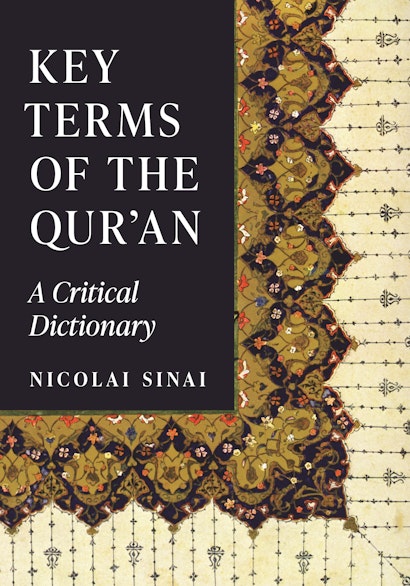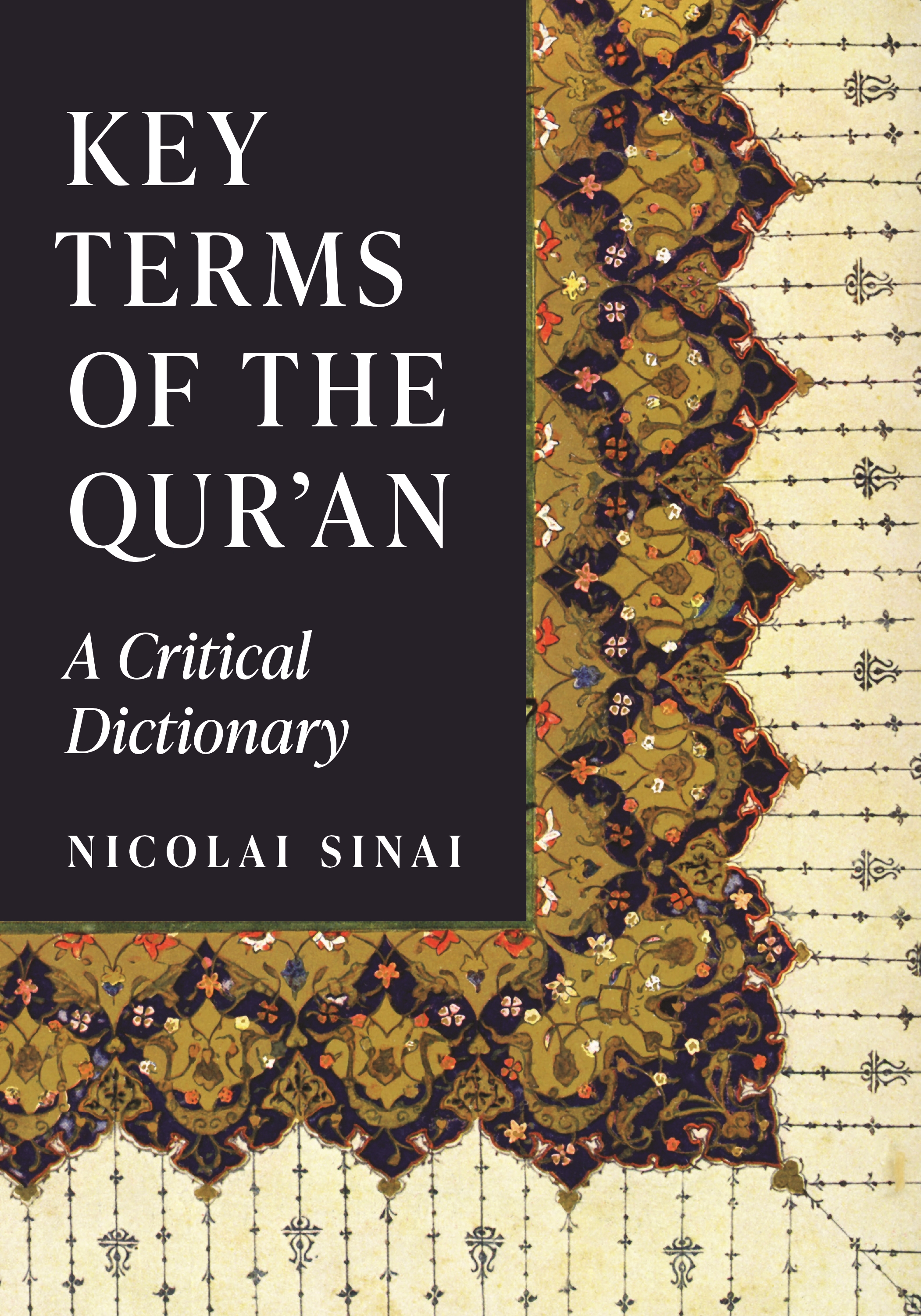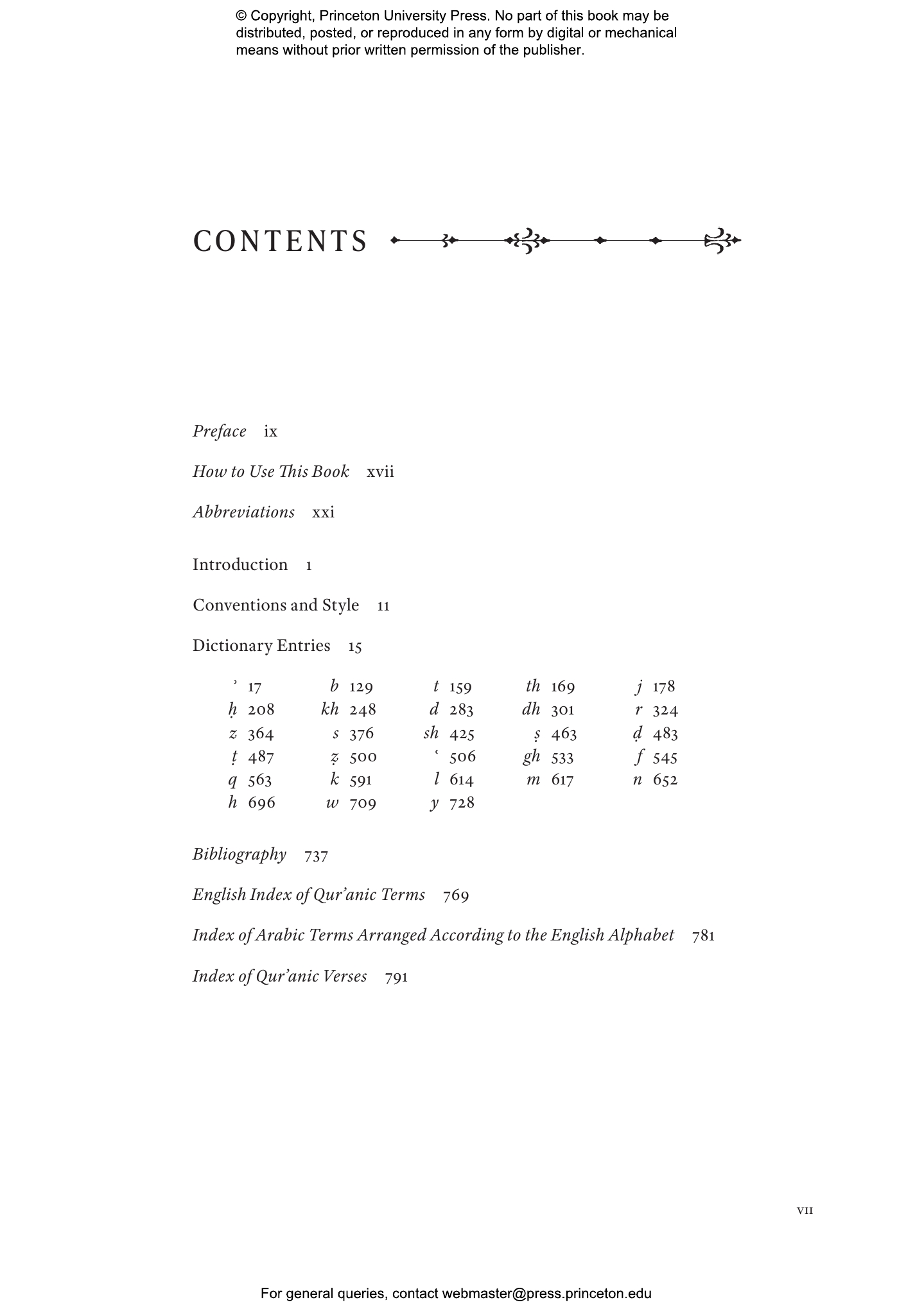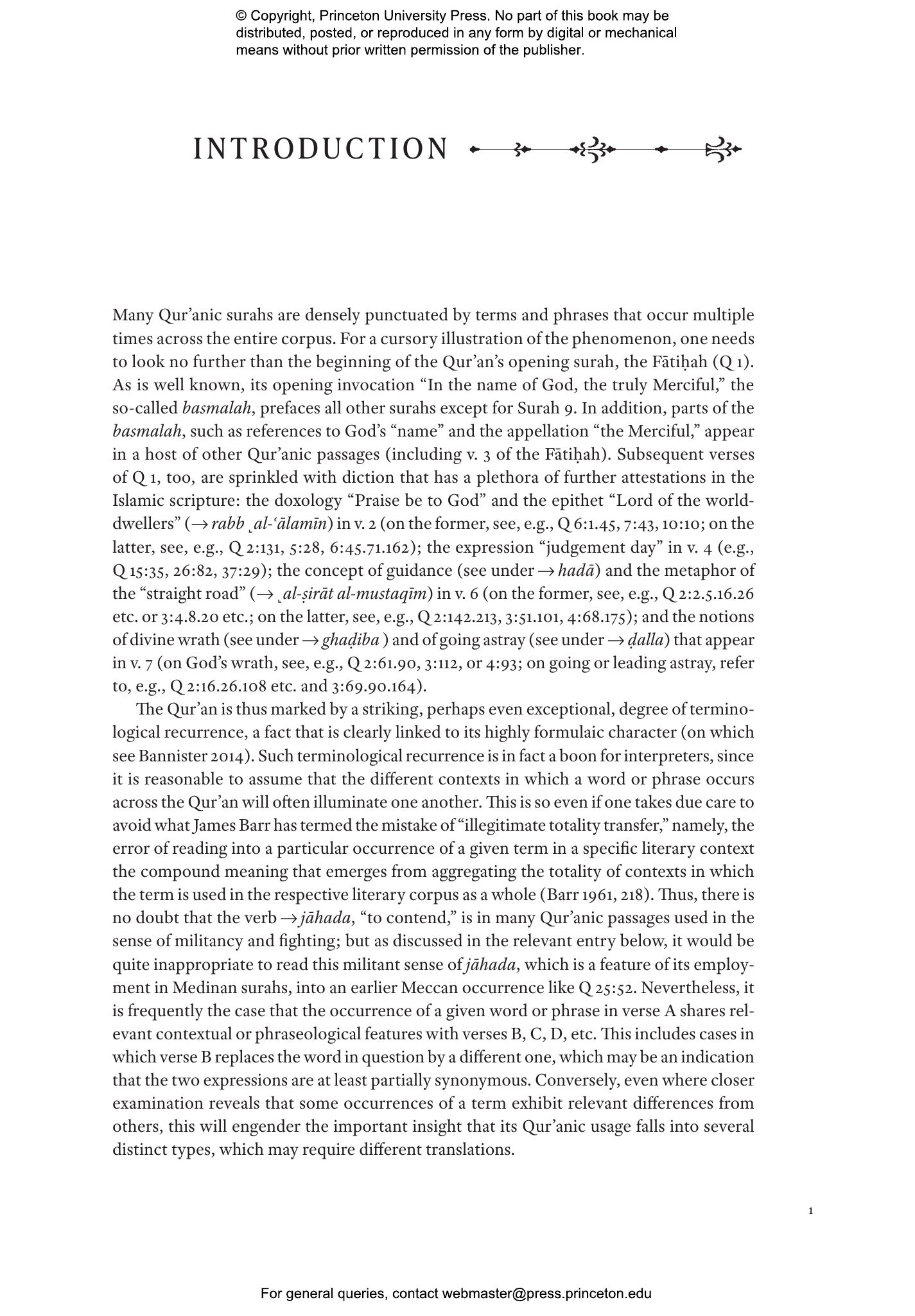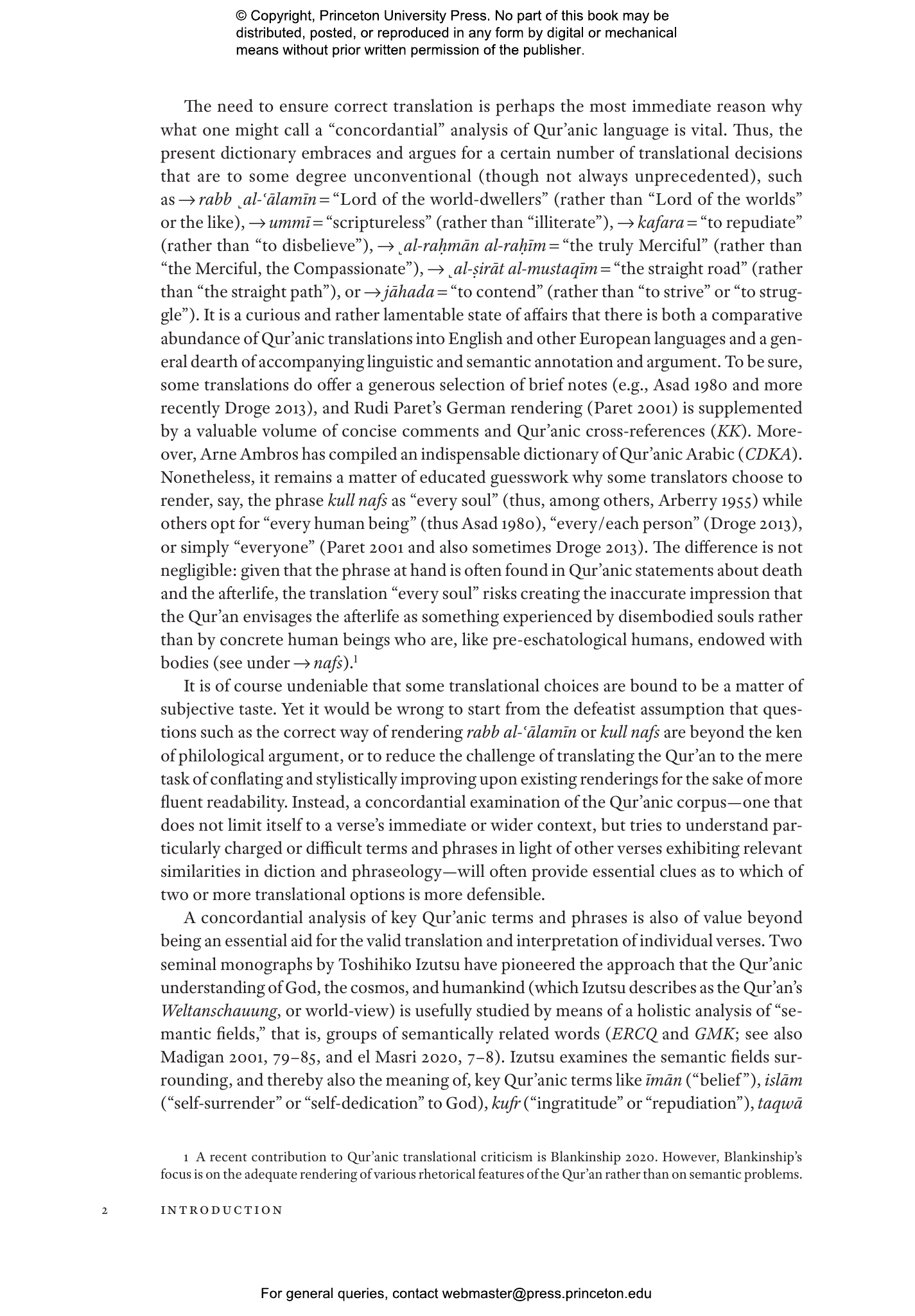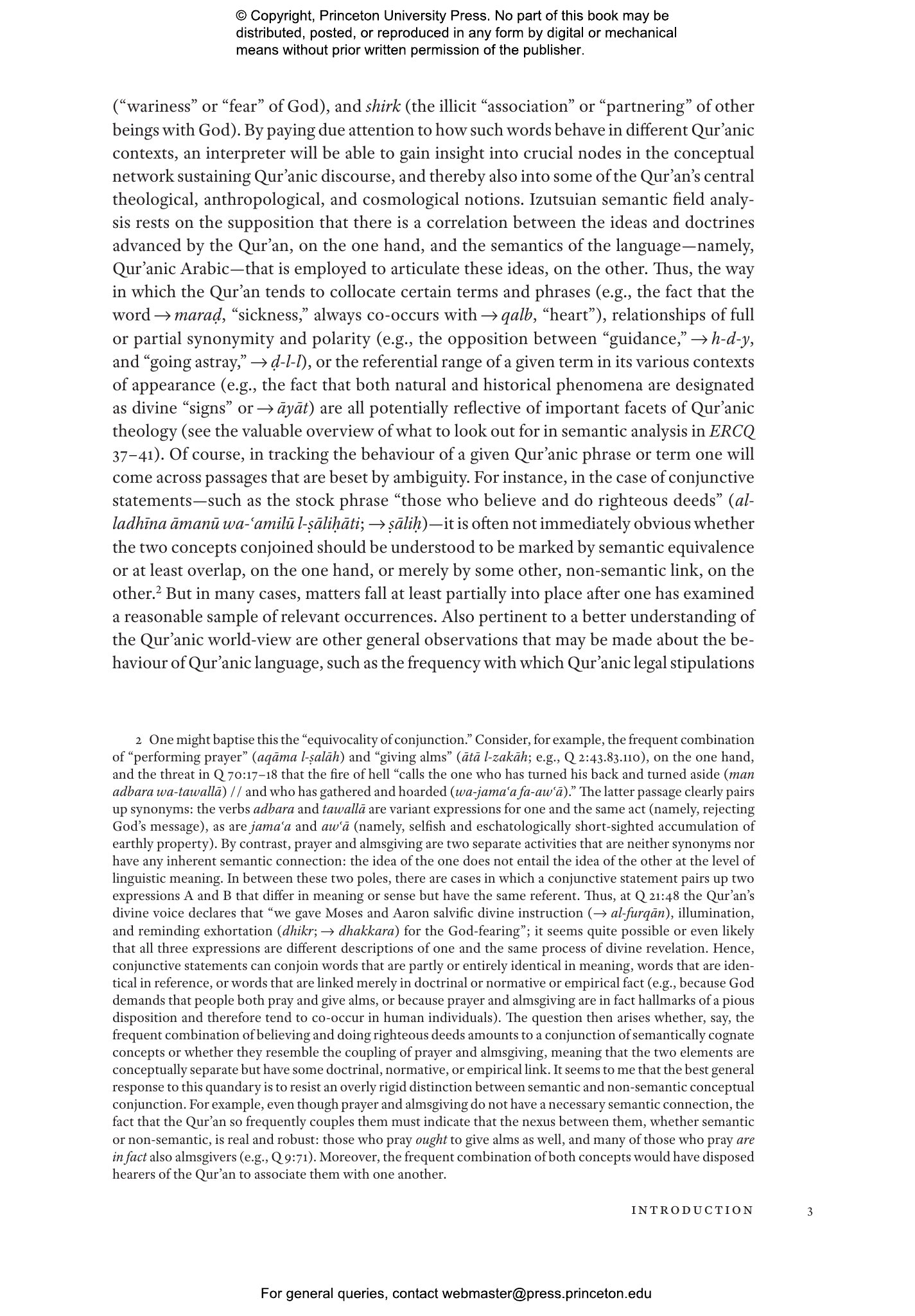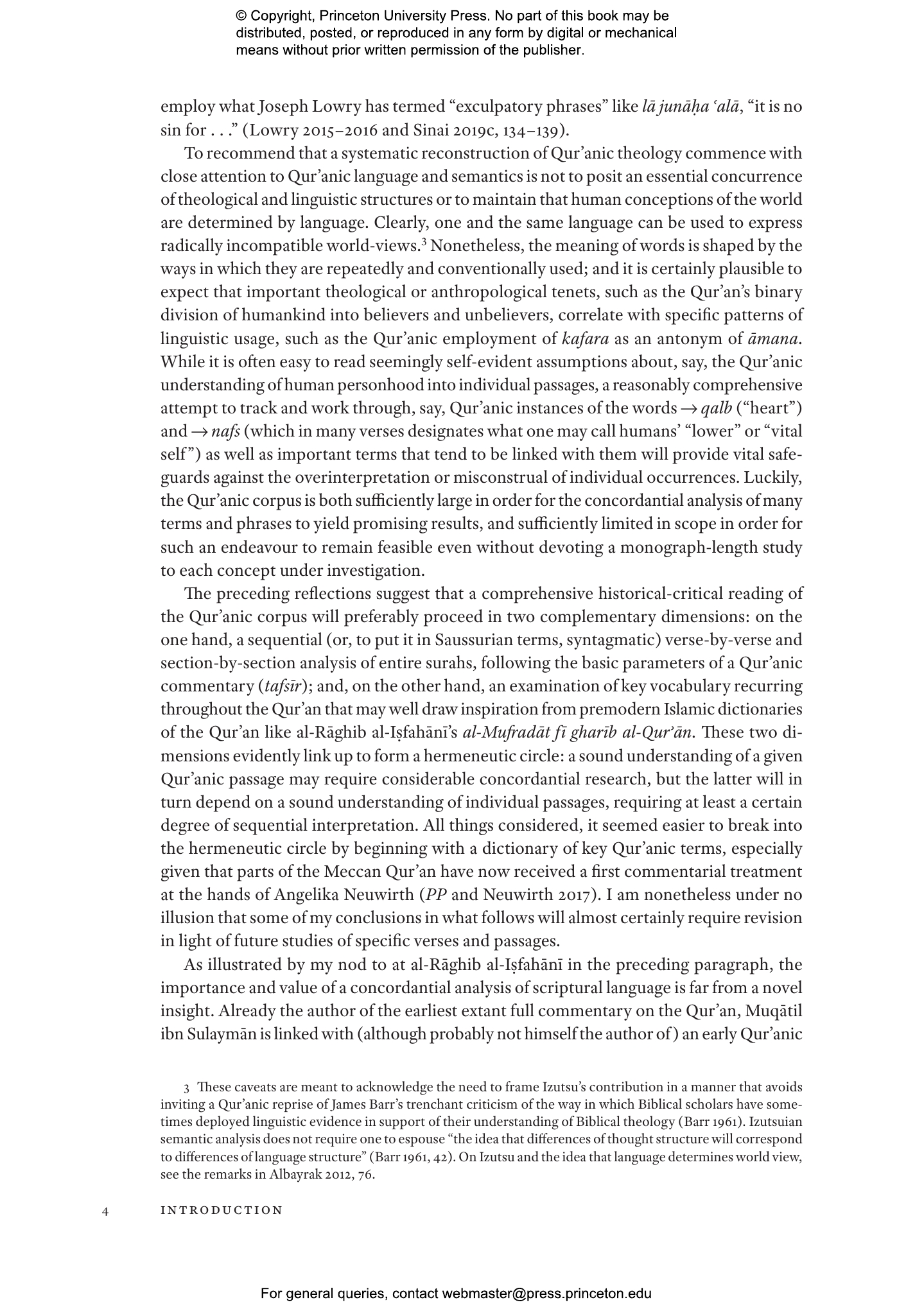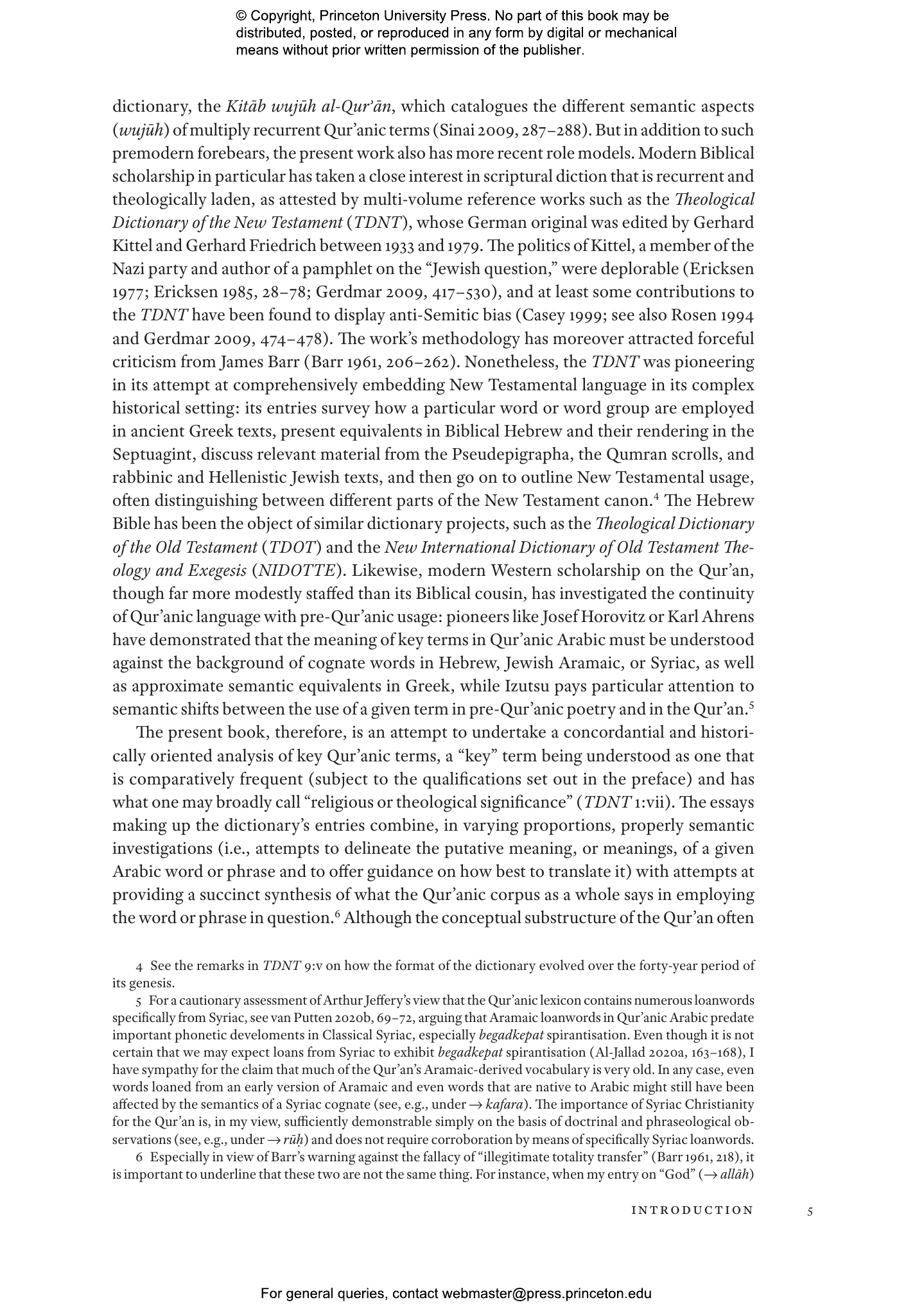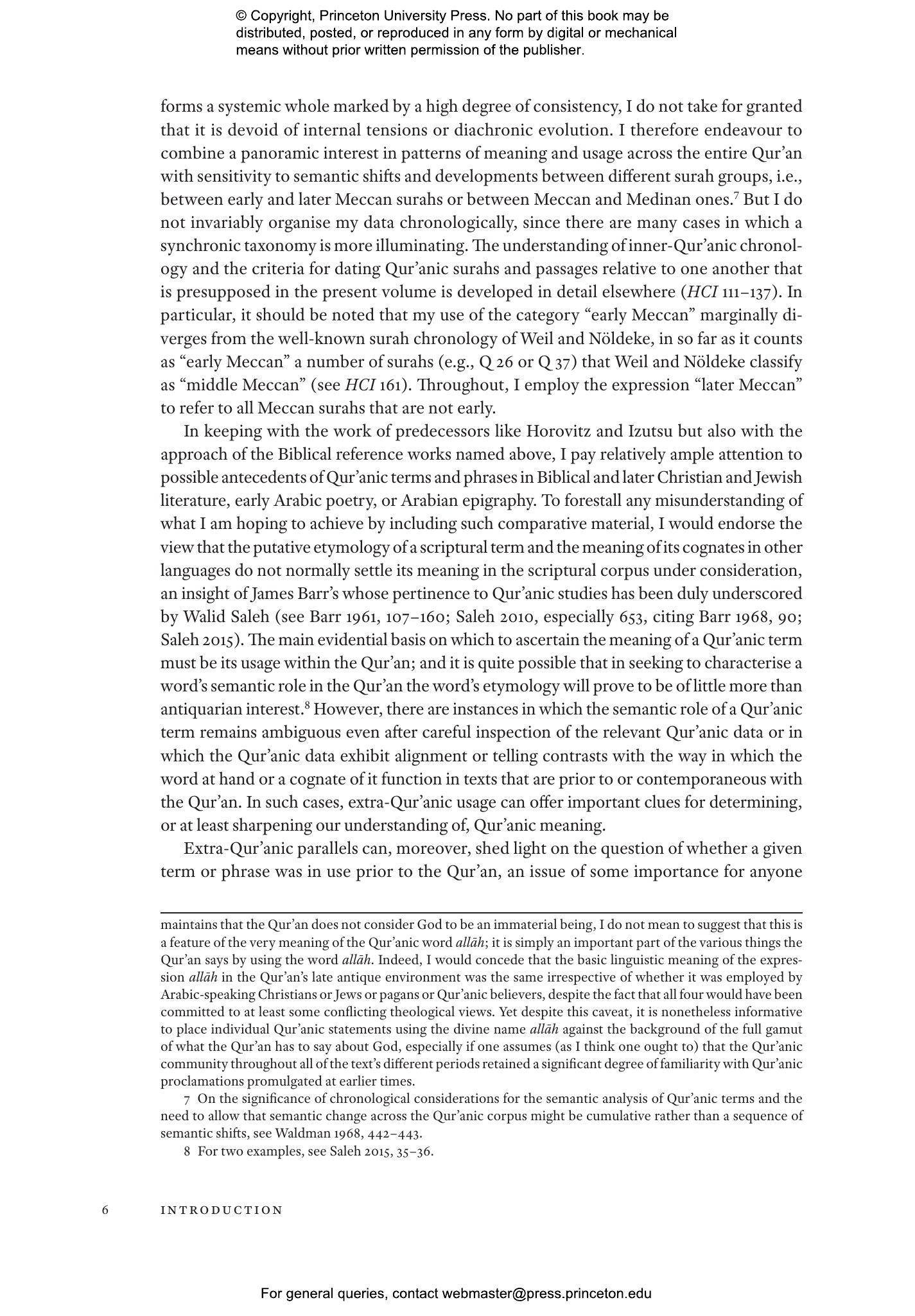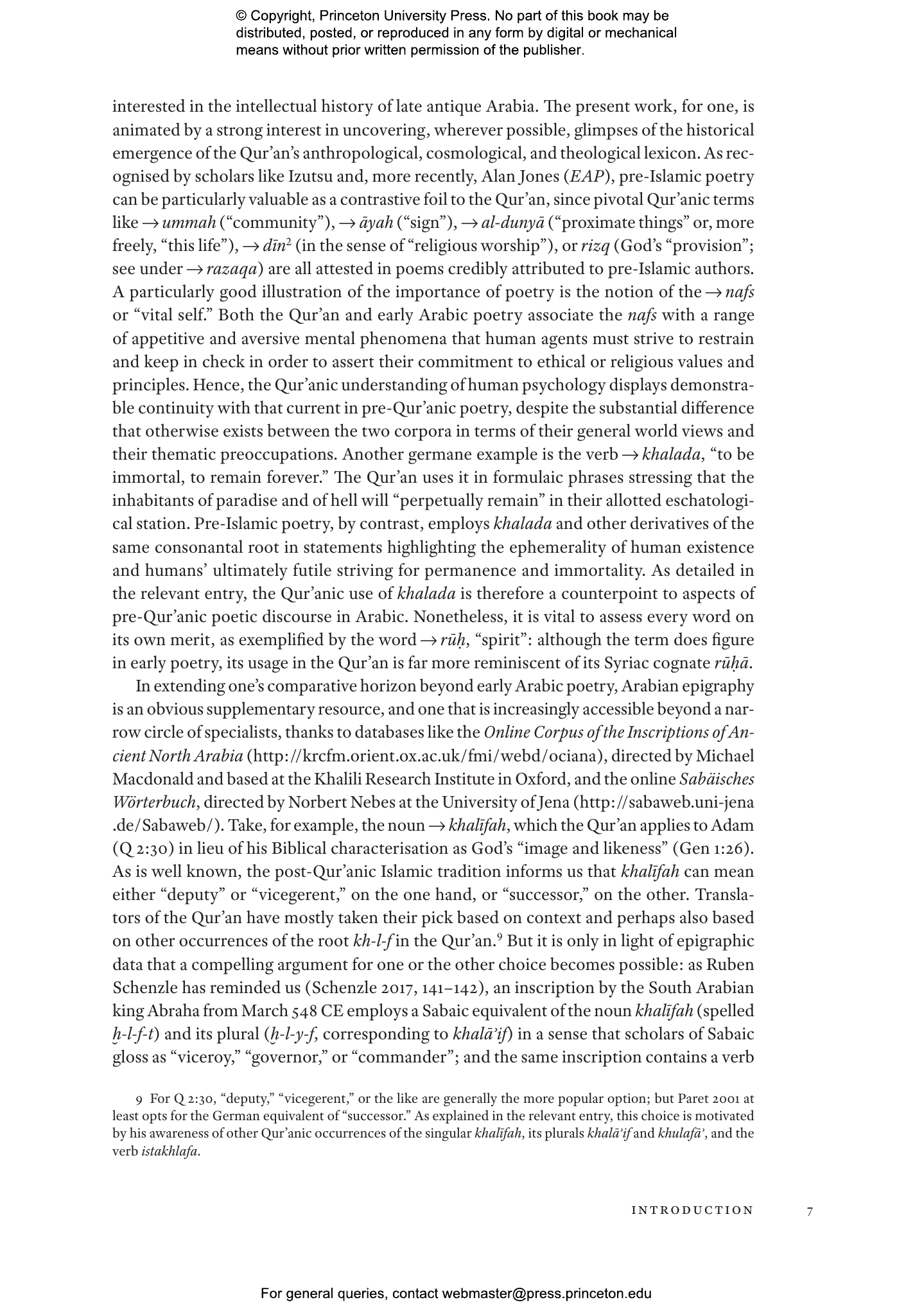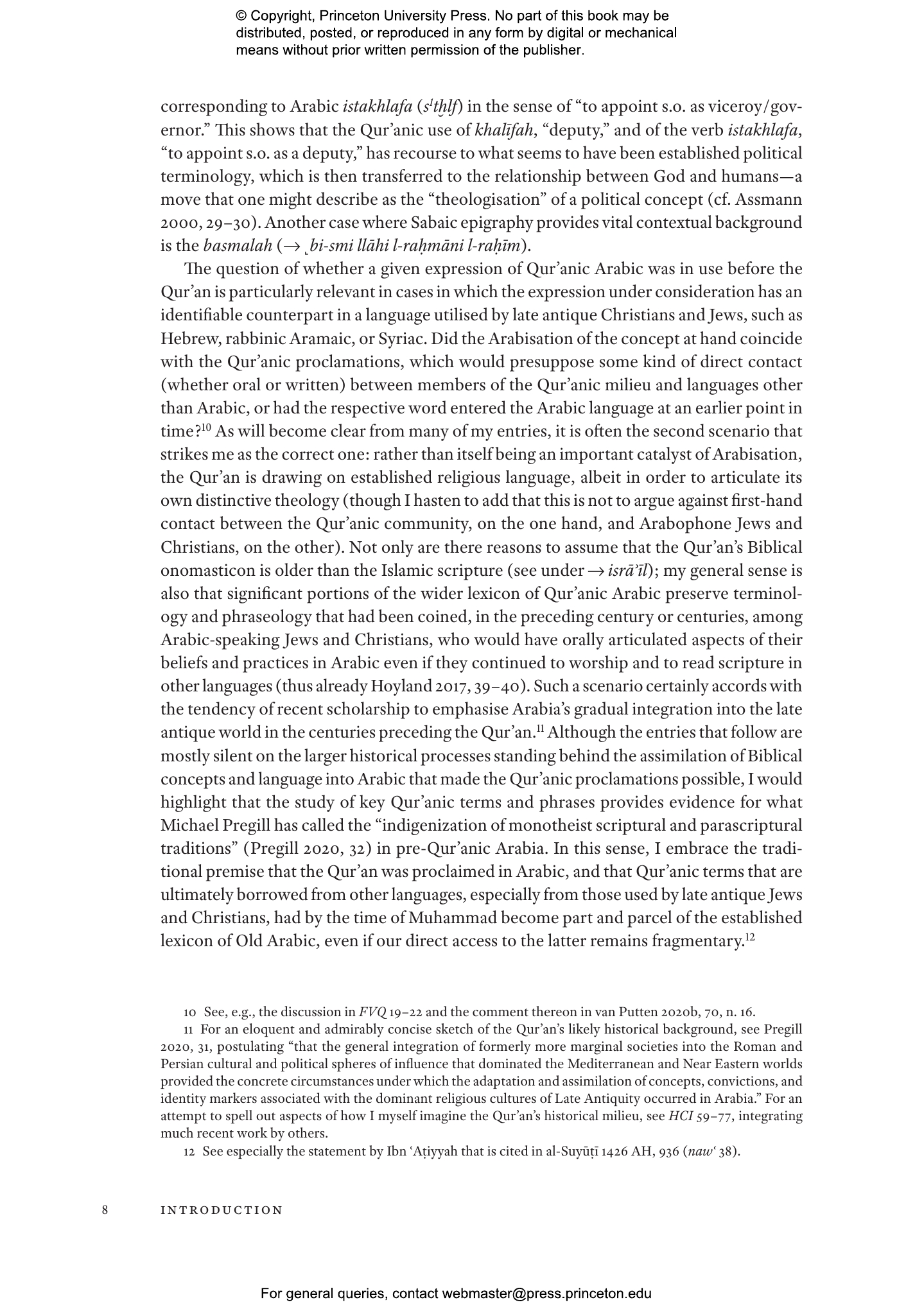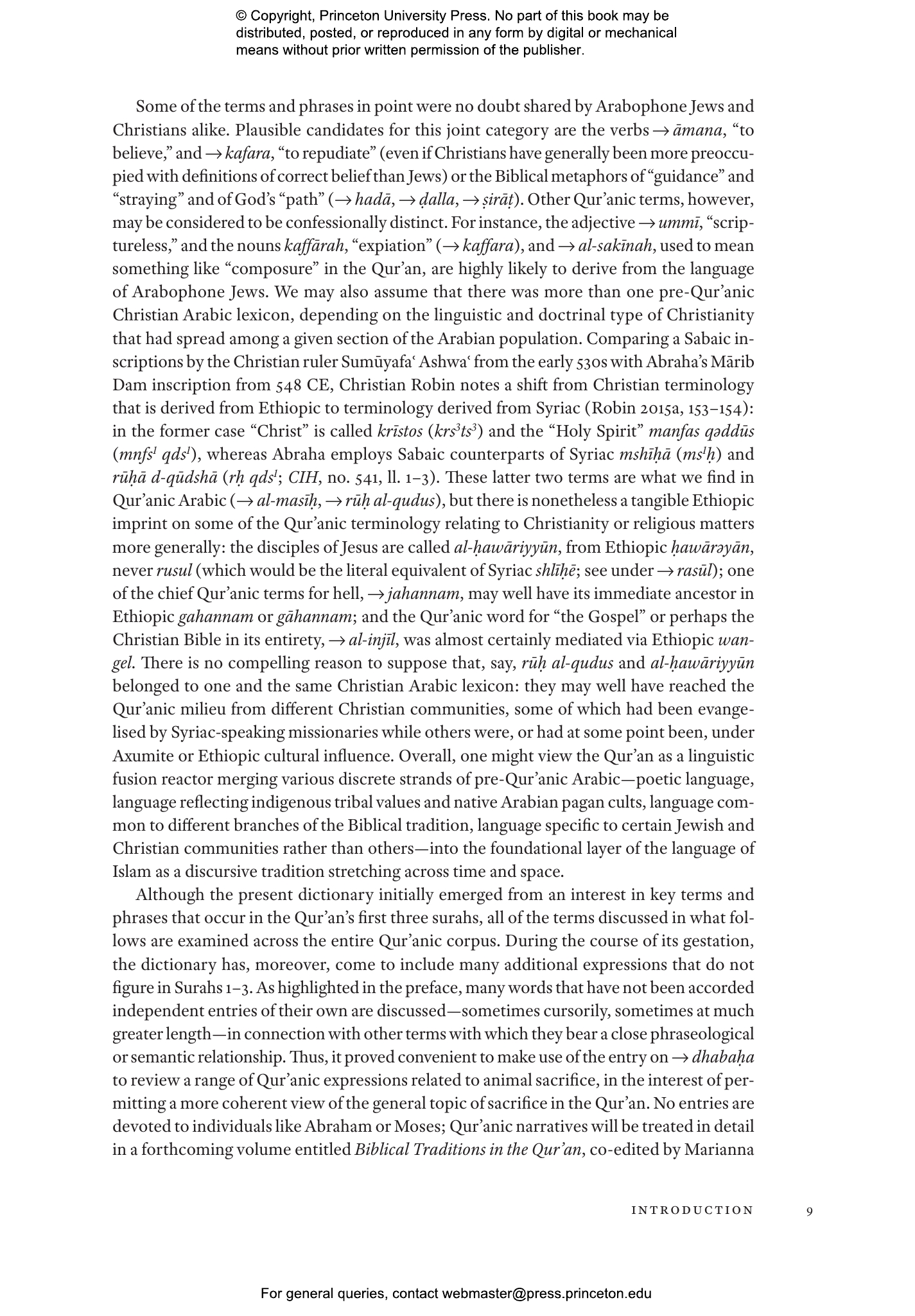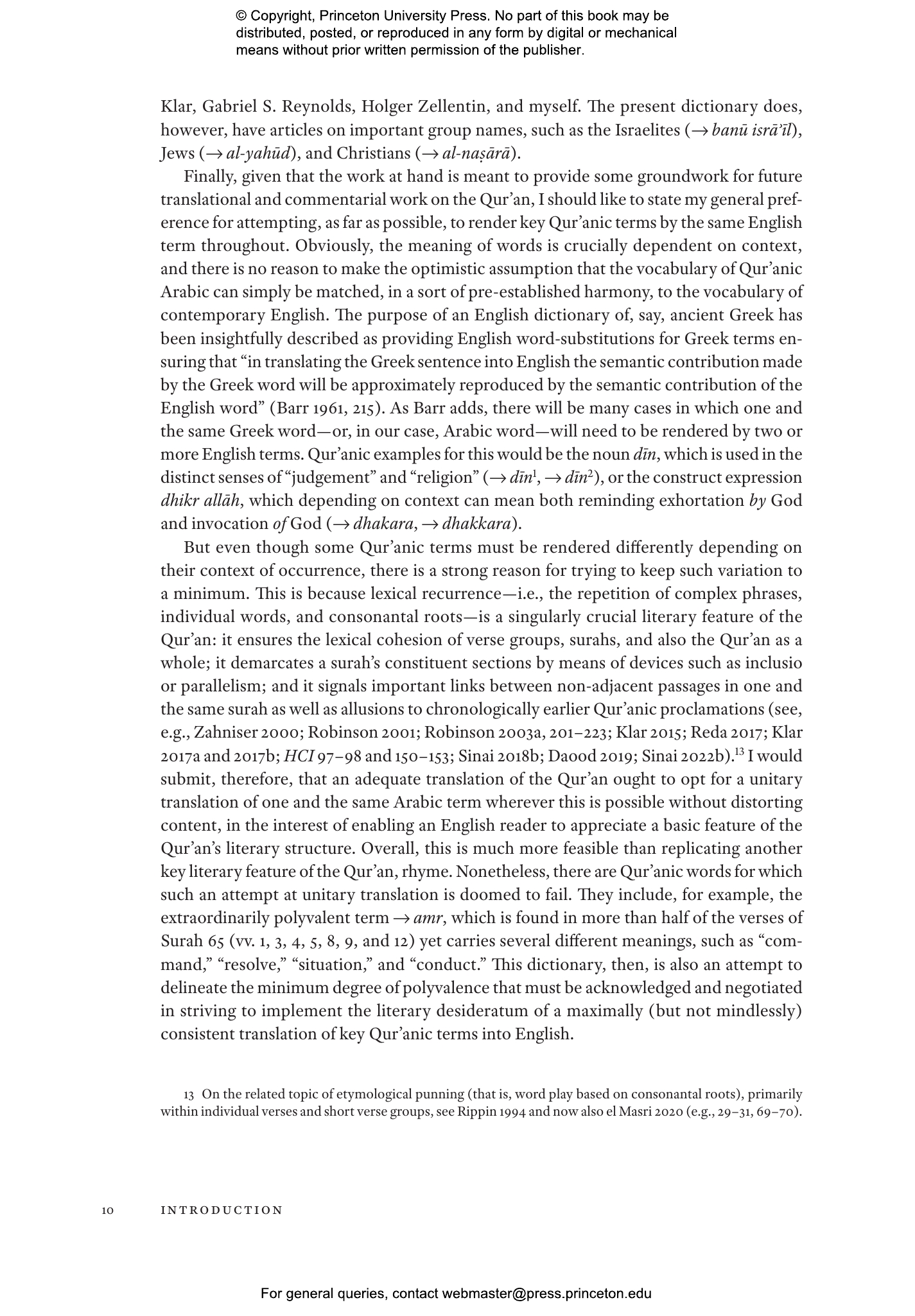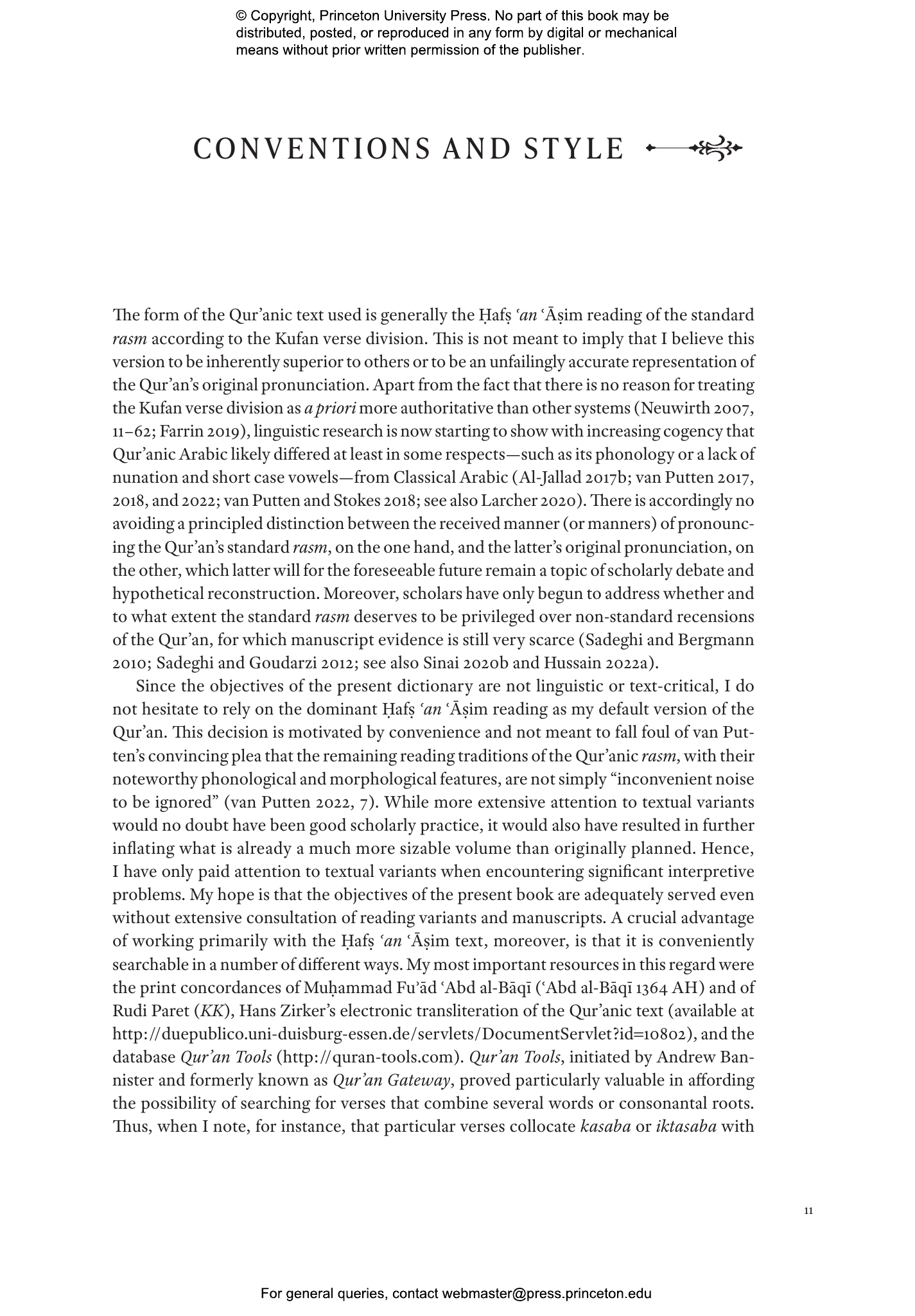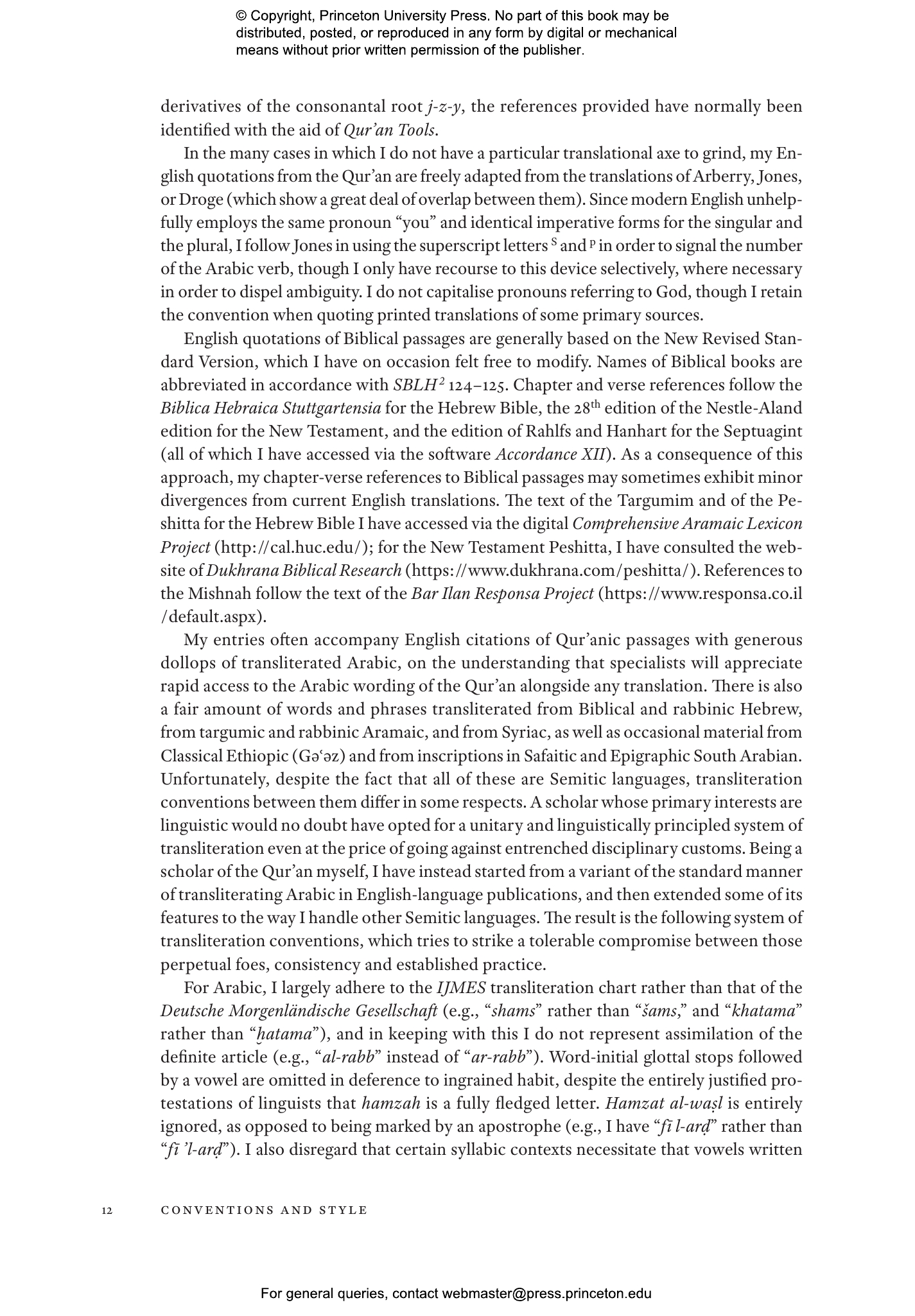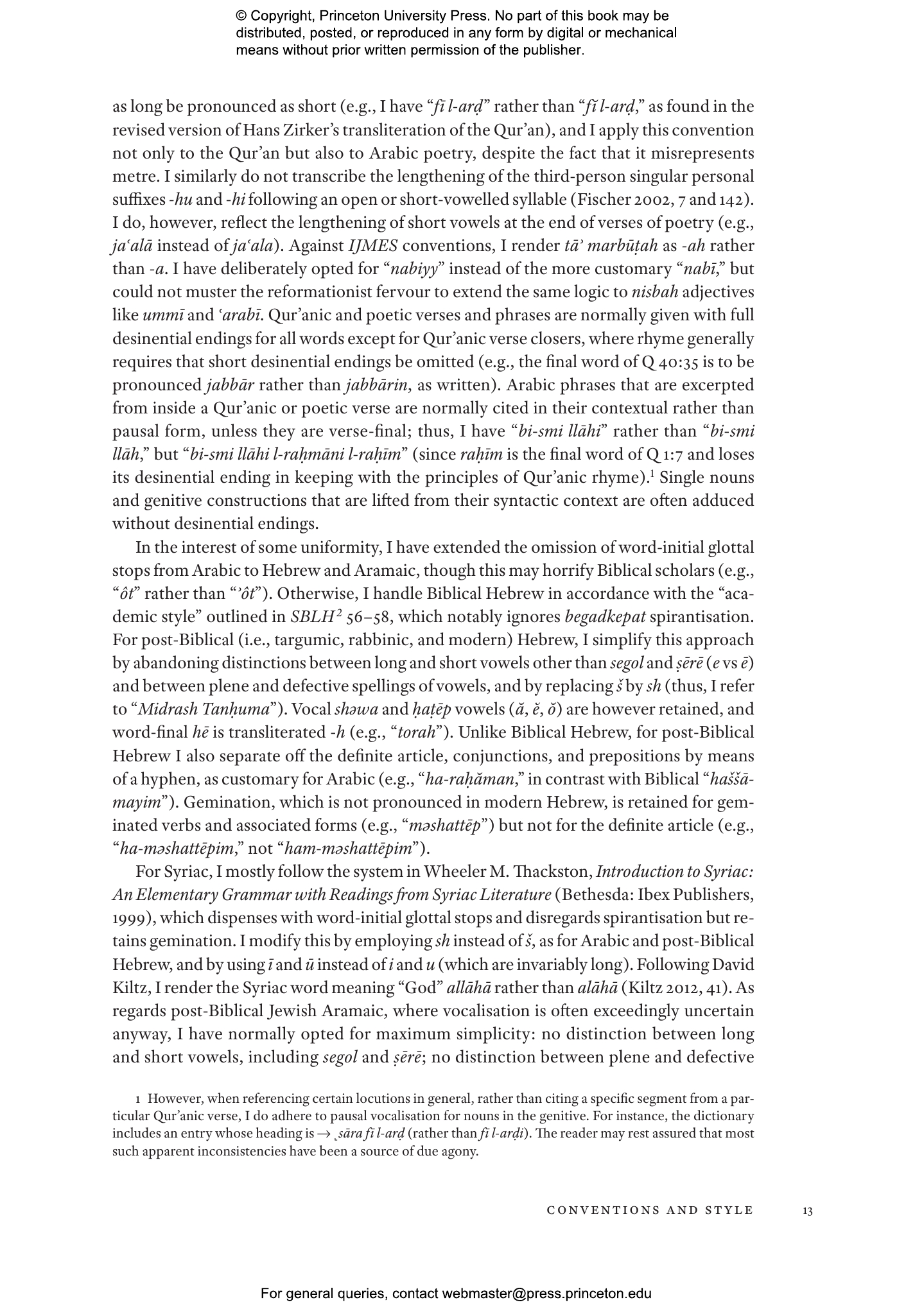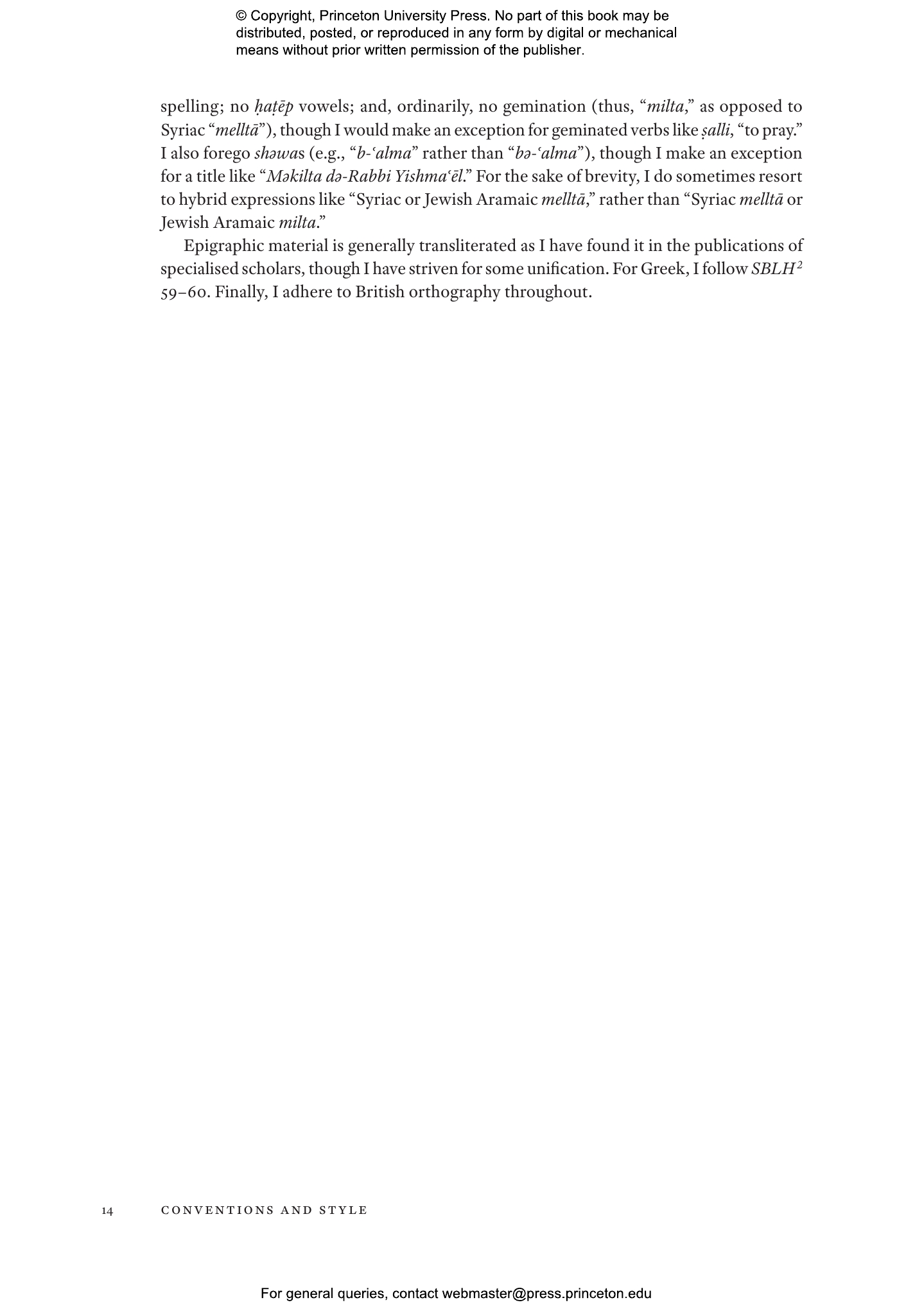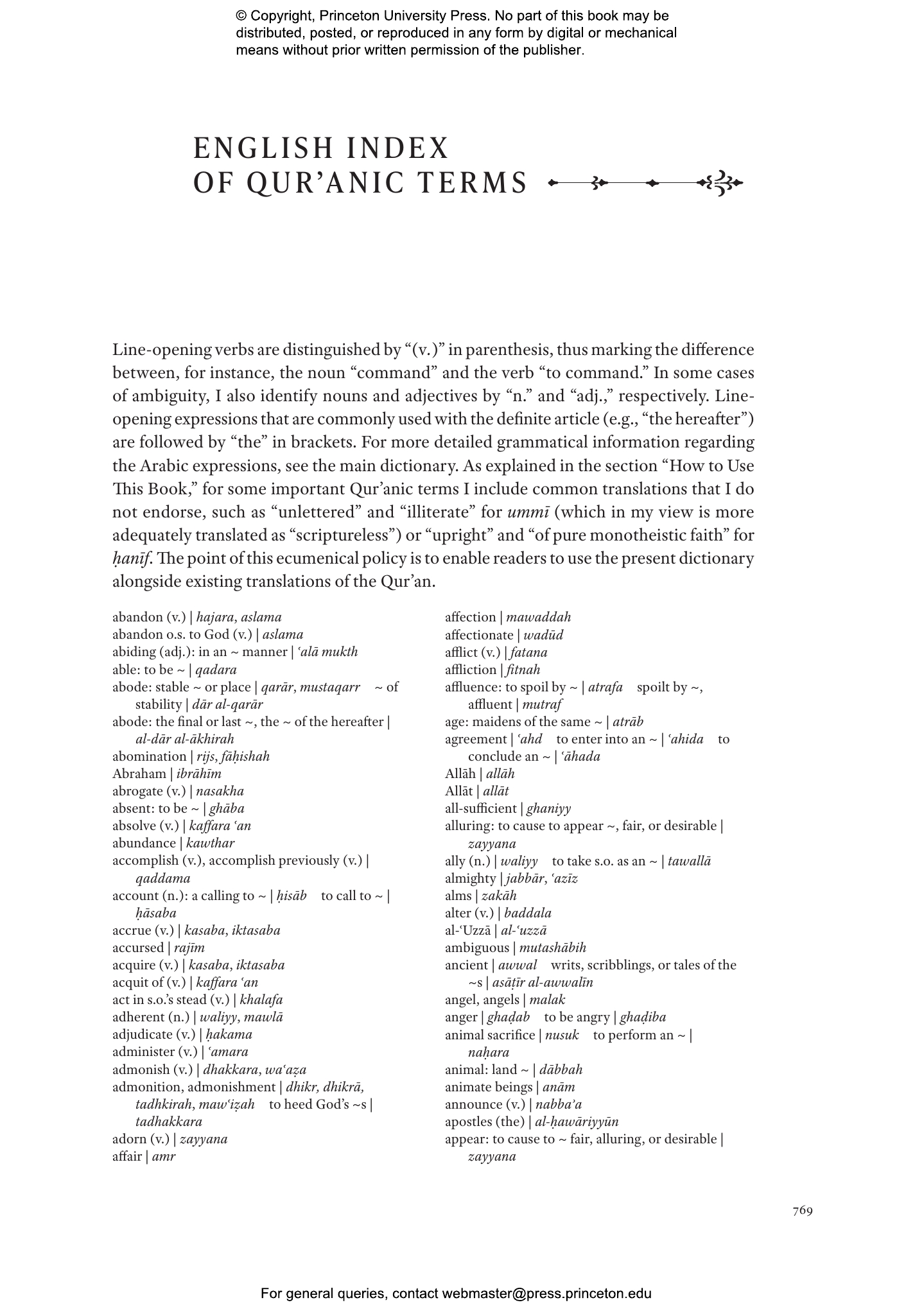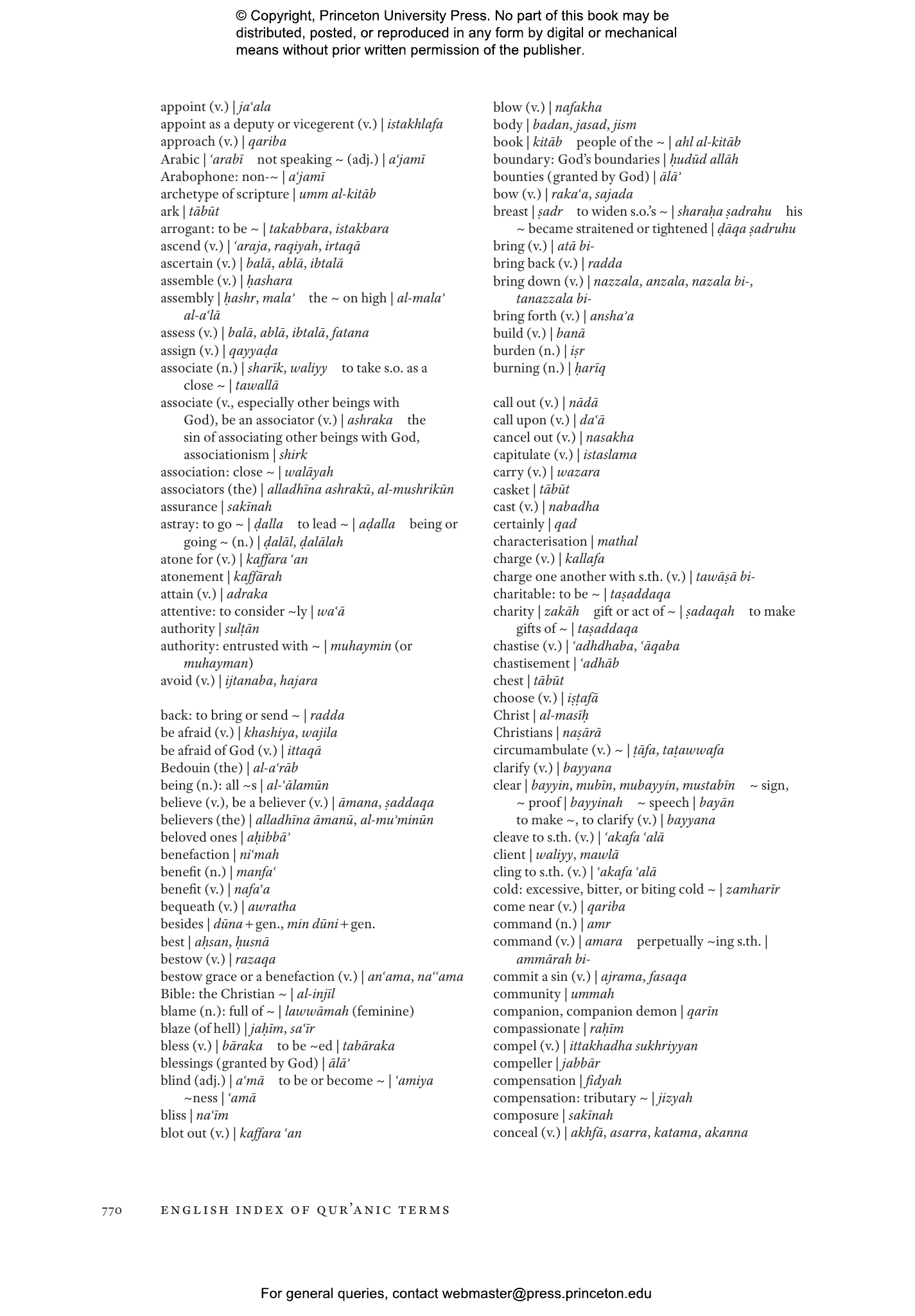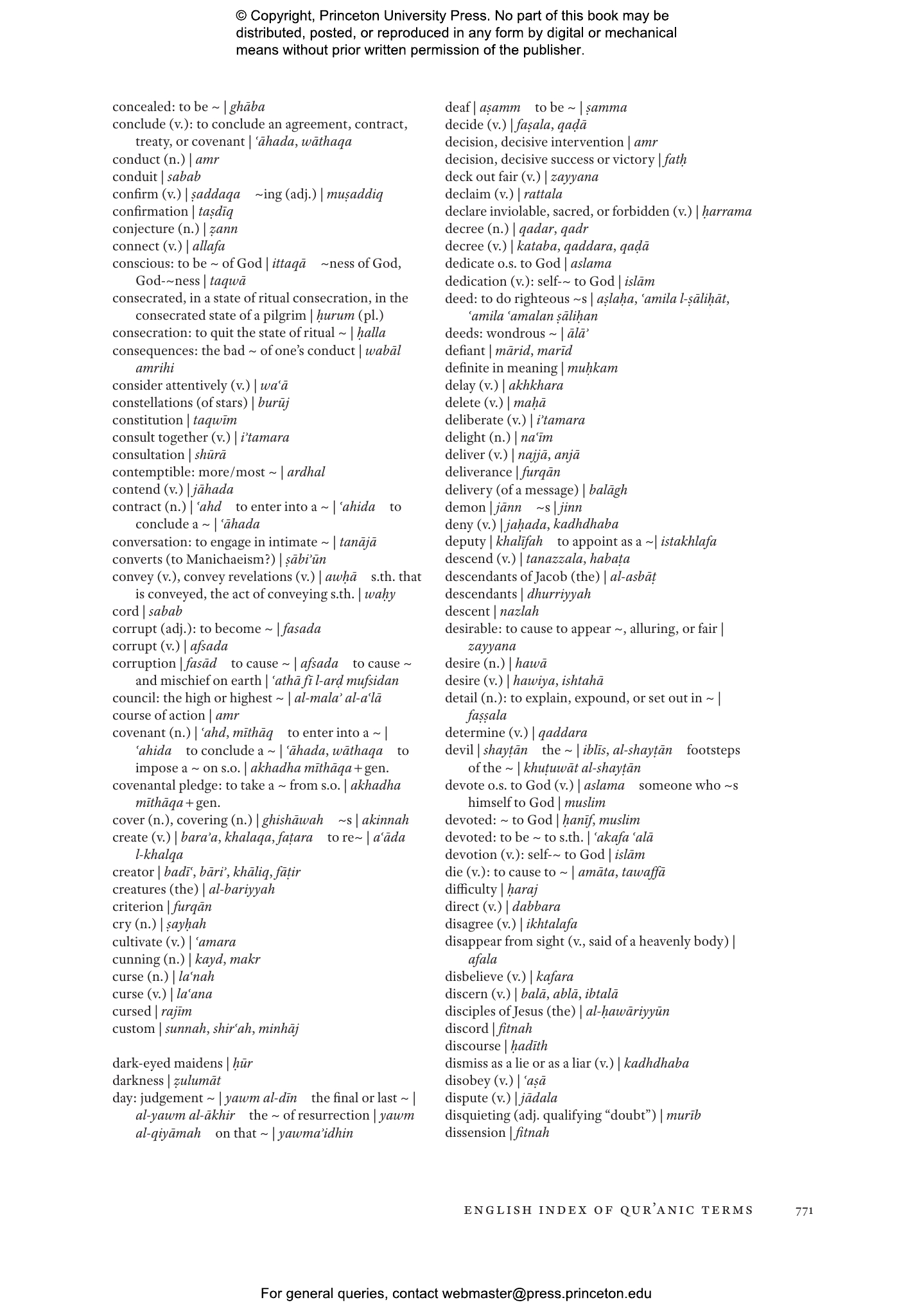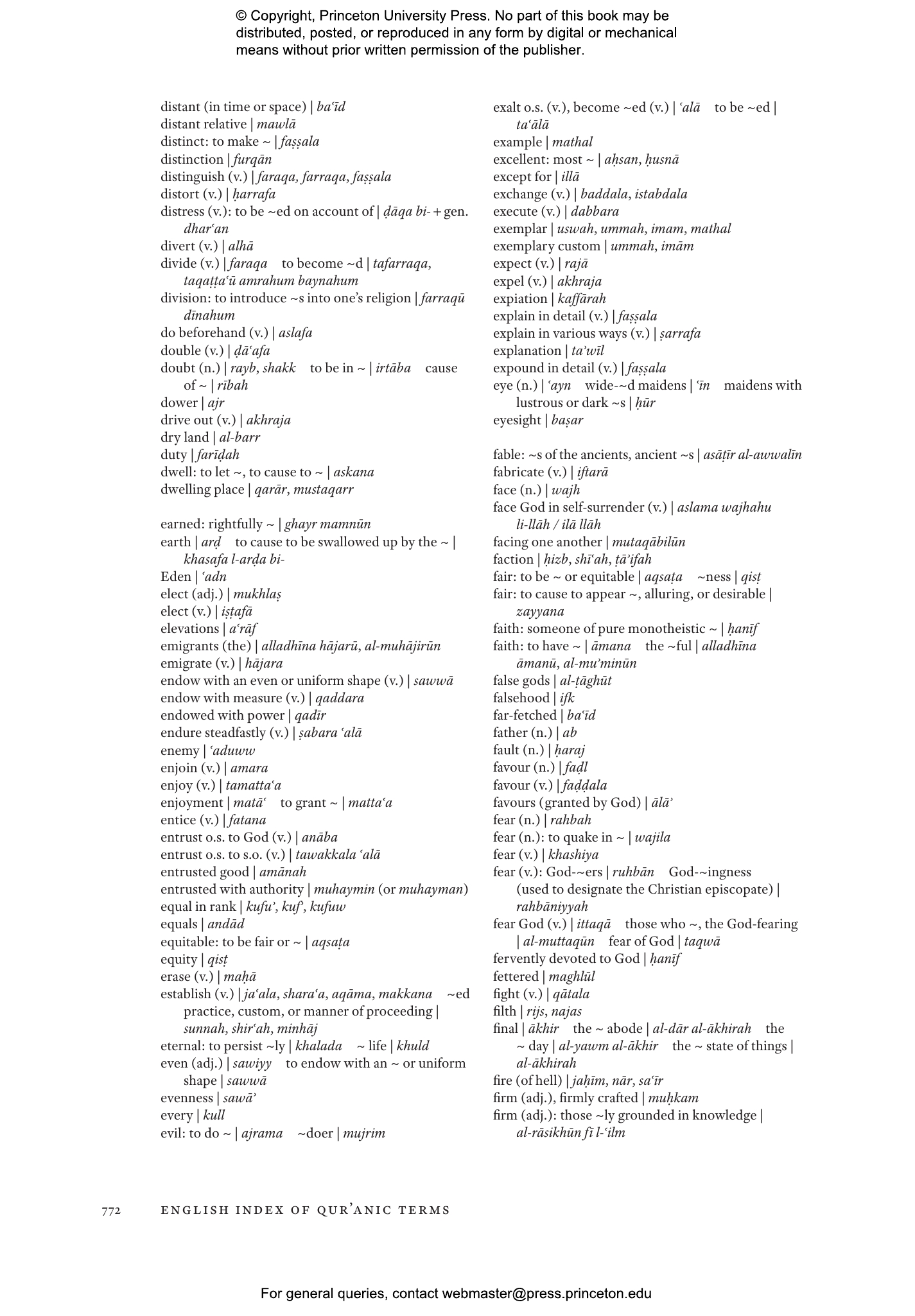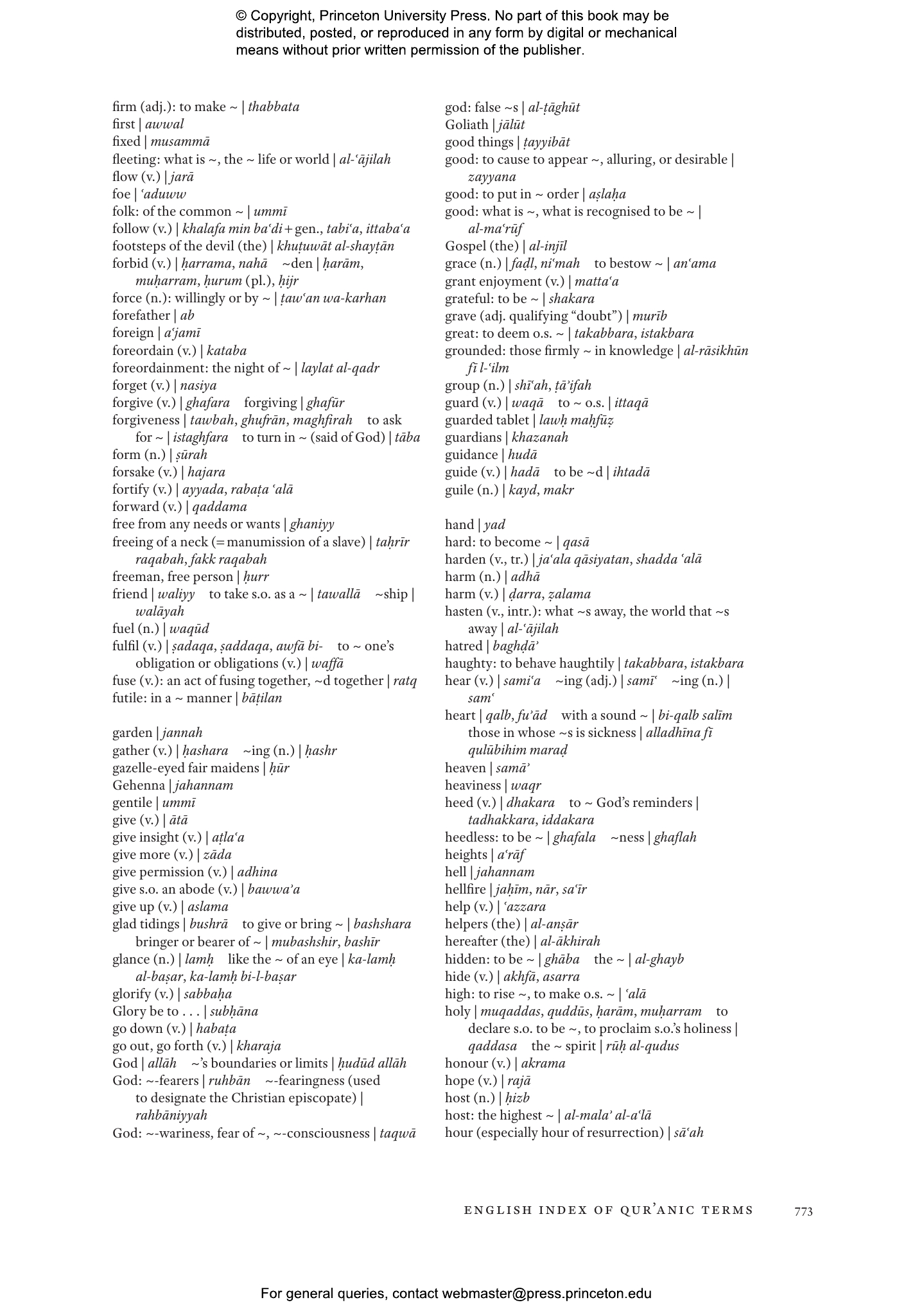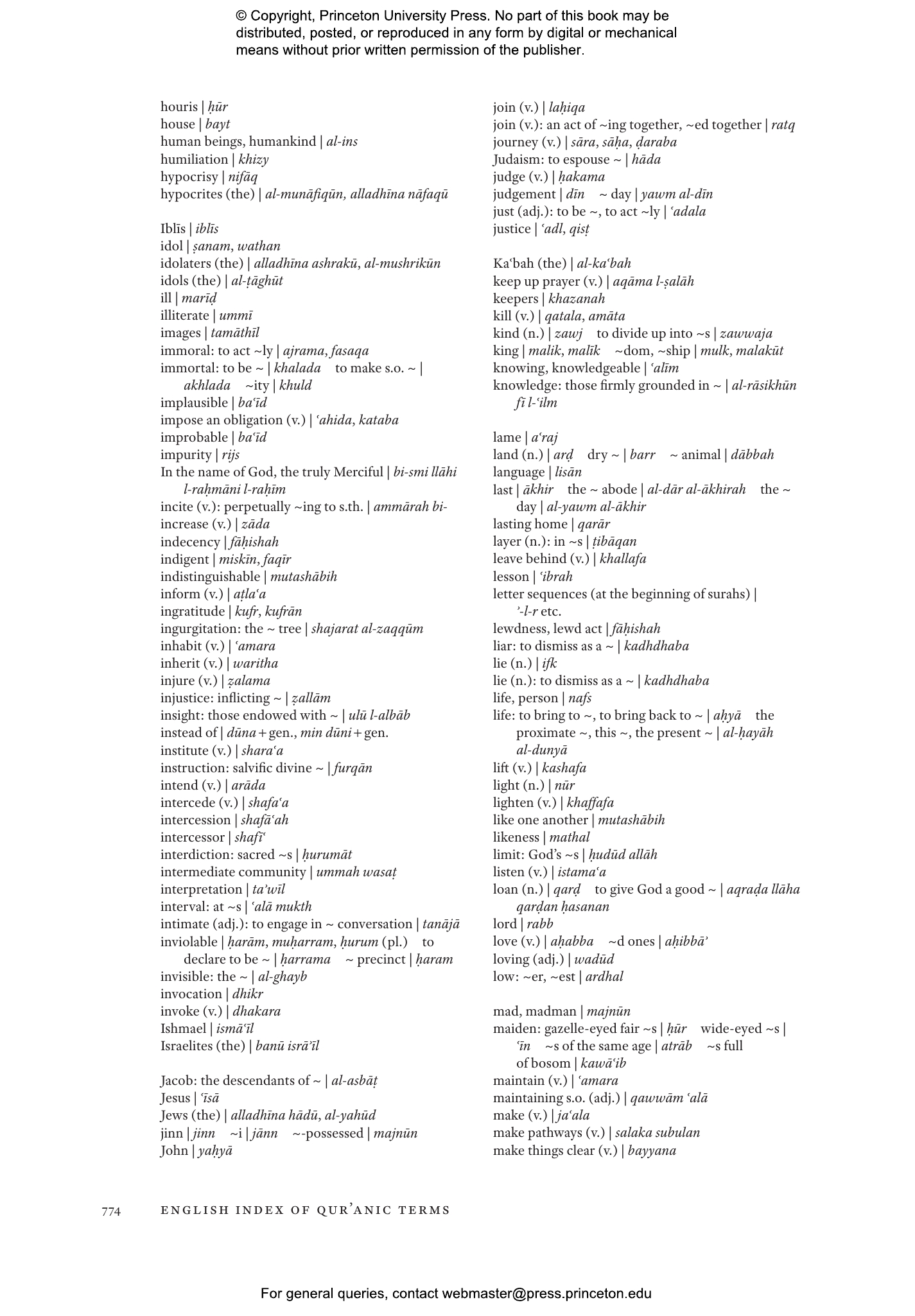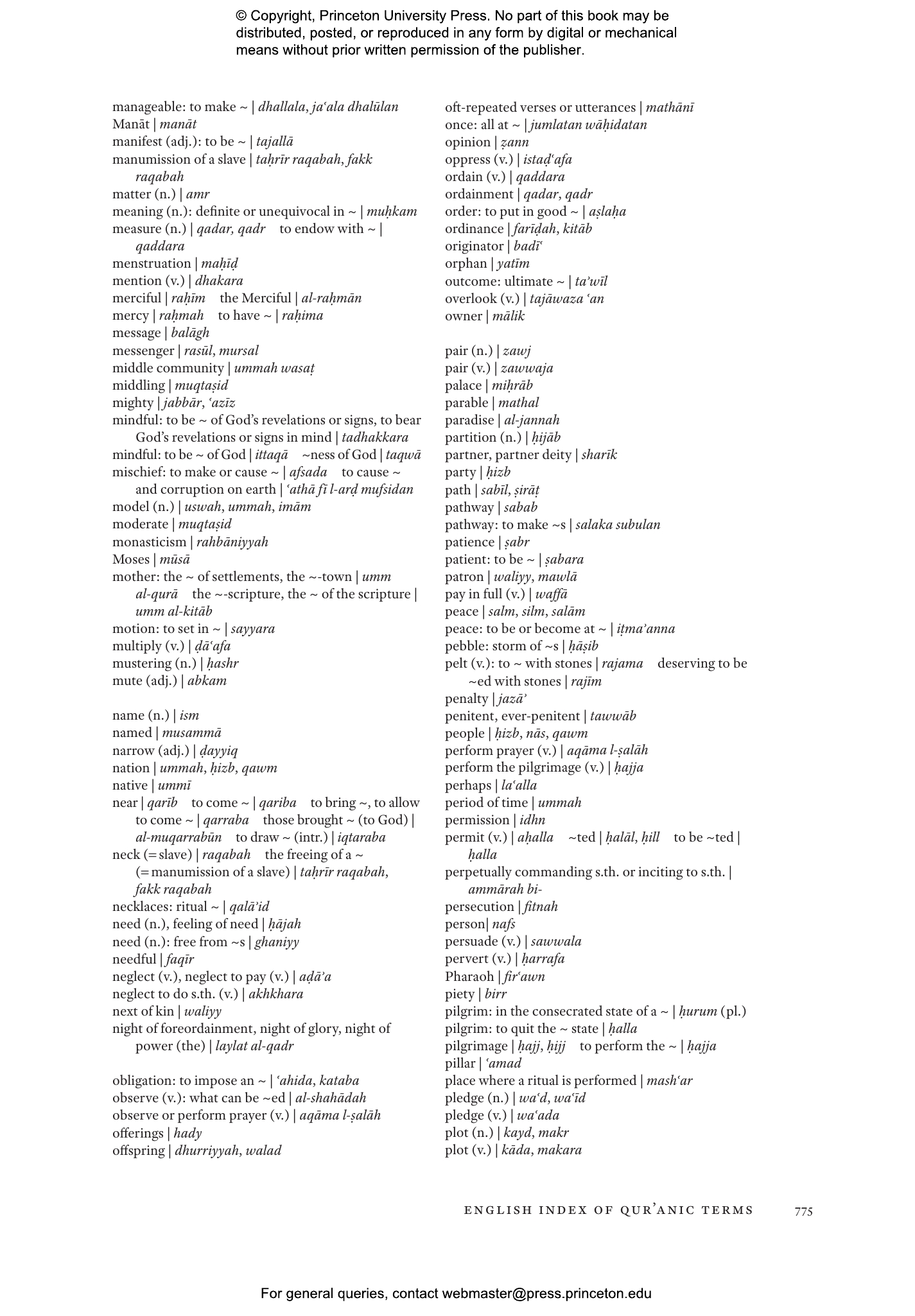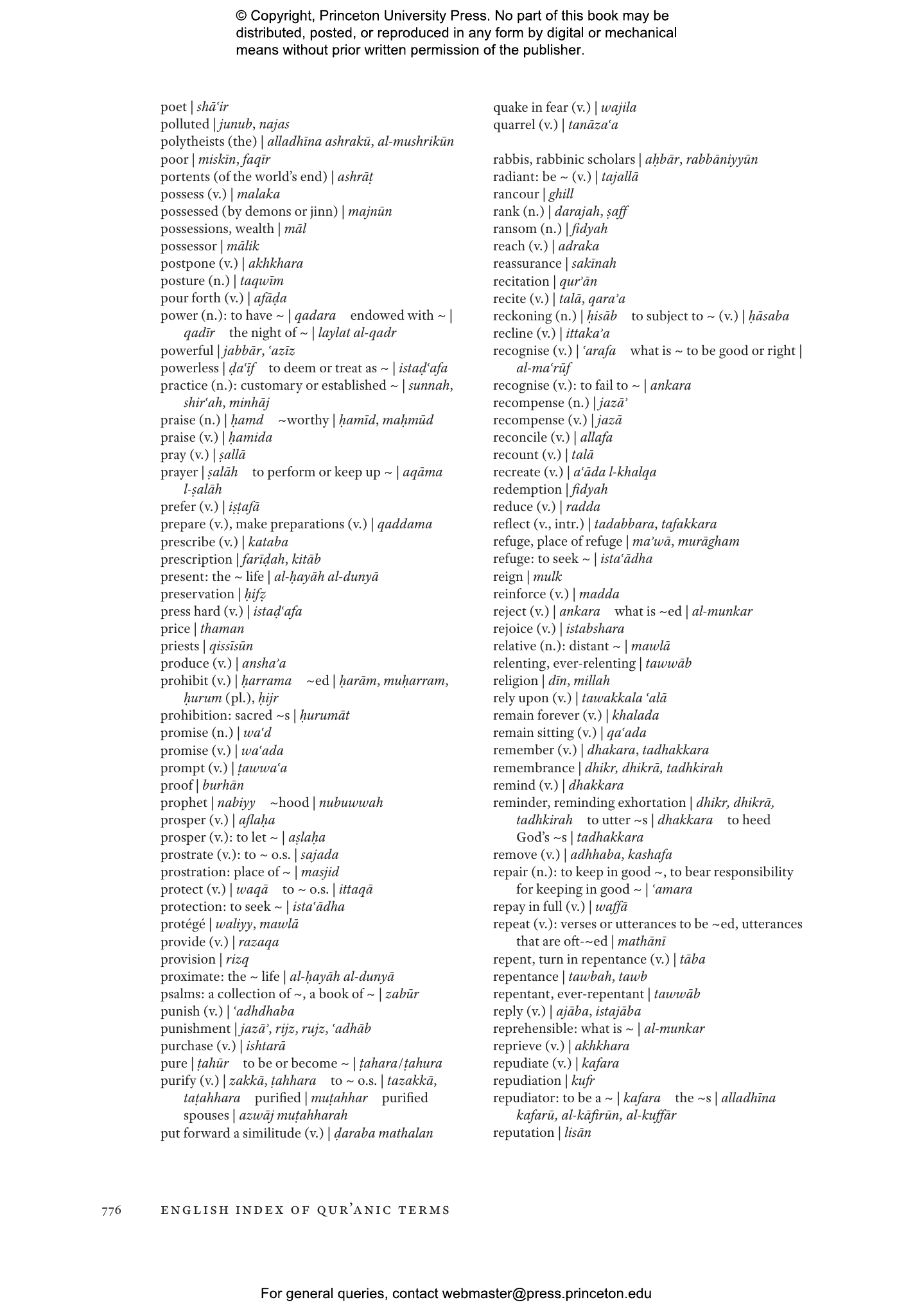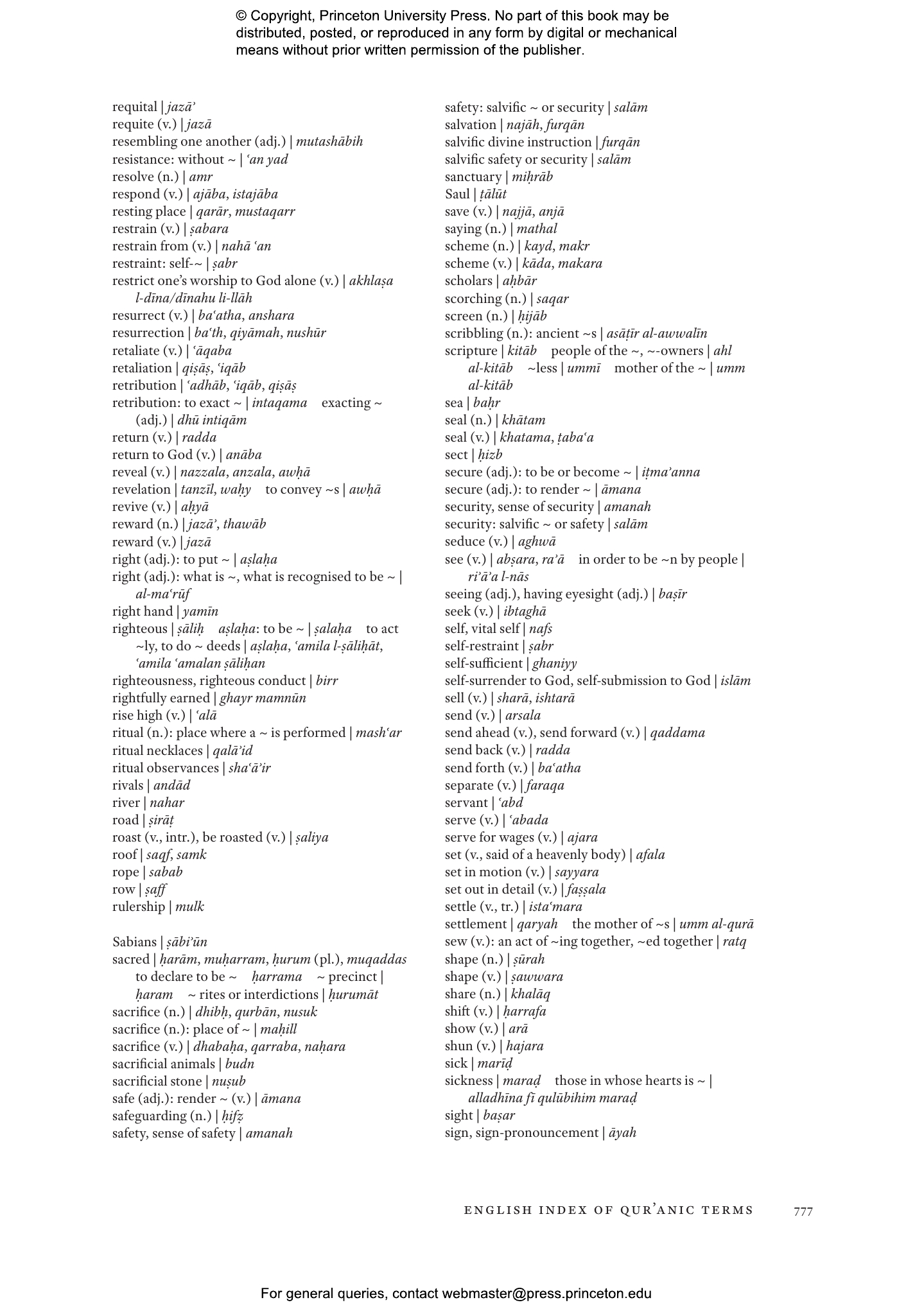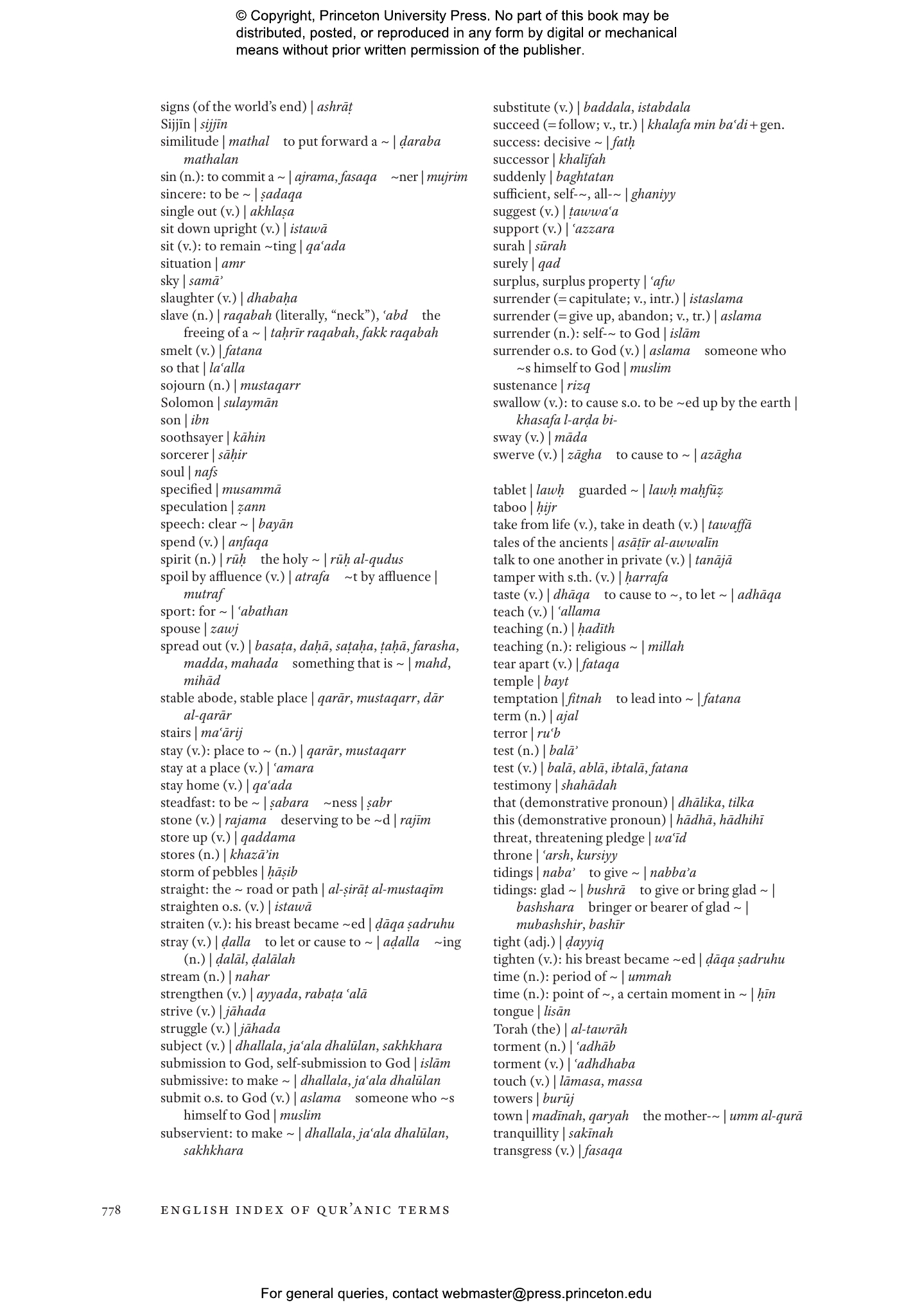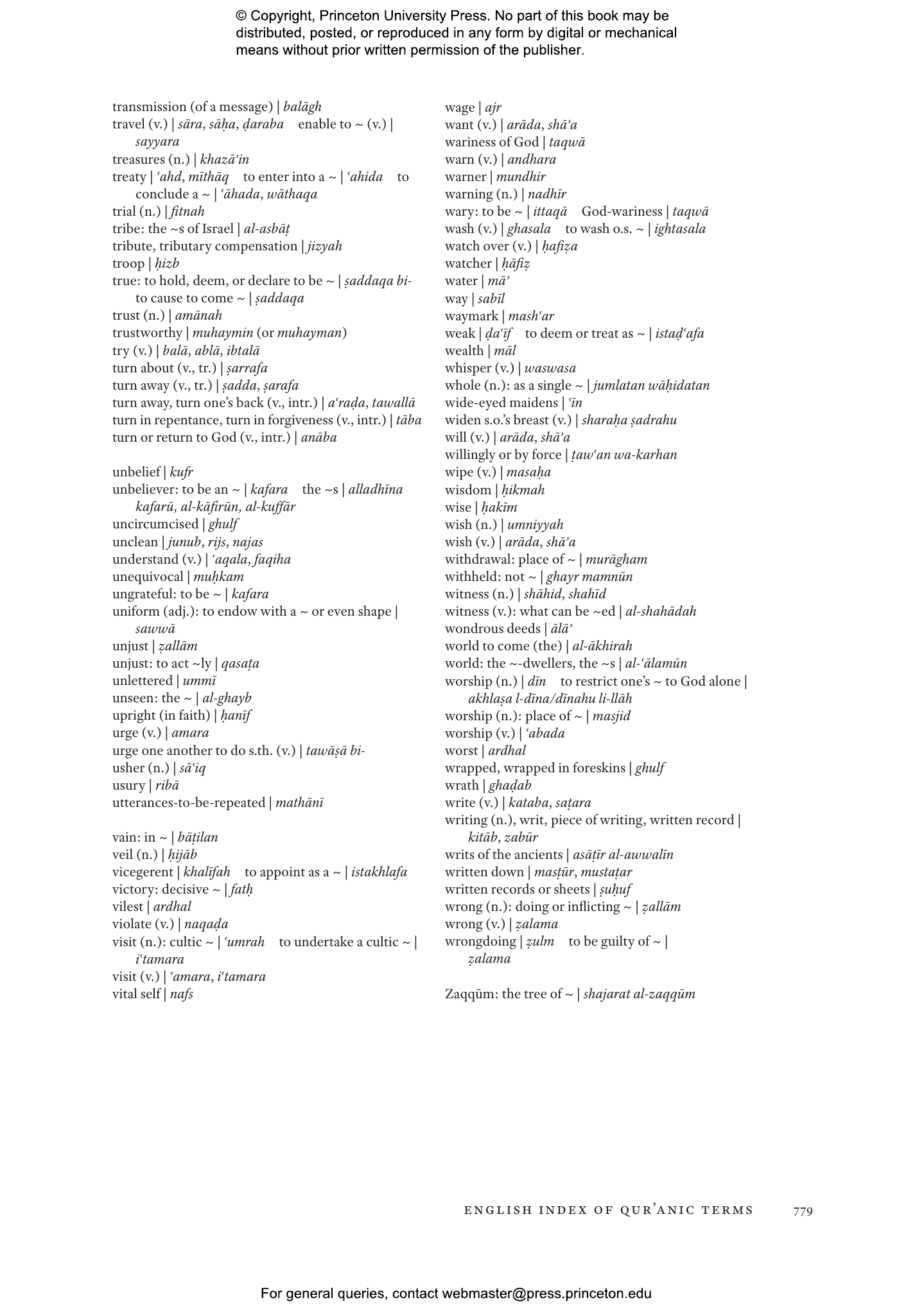This book provides detailed and multidisciplinary coverage of a wealth of key Qur’anic terms, with incisive entries on crucial expressions ranging from the divine names allāh (“God”) and al-raḥmān (“the Merciful”) to the Qur’anic understanding of belief and self-surrender to God. It examines what the terms mean in Qur’anic usage, discusses how to translate them into English, and delineates the role they play in expressing the Qur’an’s distinctive understanding of God, humans, and the cosmos. It offers a comprehensive but nonreductionist investigation of the relationship of Qur’anic terms to earlier traditions such as Jewish and Christian literature, pre-Islamic Arabic poetry, and Arabian epigraphy. While the dictionary is primarily engaged in ascertaining what the Qur’an would have meant to its original recipients in late antique Arabia, it makes selective and critical use of later Muslim scholarship alongside an extensive body of secondary research in English, German, and French from the nineteenth century to today.
- The most authoritative historical-critical reference work on key Qur’anic terms
- Features a host of entries ranging from concise overviews to substantial essays
- Draws on comparative material such as Jewish and Christian literature, pre-Islamic Arabic poetry, and Arabian epigraphy
- Discusses how to best translate Qur’anic terms into English
- Explores the Qur’an’s vision of God, humans, and the cosmos through an analysis of fundamental and recurrent Qur’anic expressions
- Accessible to readers with little or no Arabic
Nicolai Sinai is professor of Islamic studies at the University of Oxford and a fellow of Pembroke College. His books include The Qur’an: A Historical-Critical Introduction and Rain-Giver, Bone-Breaker, Score-Settler: Allāh in Pre-Quranic Poetry.
“An indispensable resource for anyone interested in reading the Qur’an. Sinai’s brilliance is on full display on every page of this stunningly comprehensive and remarkably engaging book. We owe him a debt of gratitude for his invaluable contribution to our understanding not just of the Qur’an but of its various intertexts and contexts.”—Carol Bakhos, author of The Family of Abraham: Jewish, Christian, and Muslim Interpretations
“This is a brilliantly conceived book that productively meshes the lexical, technical, and analytical dimensions of Qur’anic terms. Penned by a highly credentialed Qur’an scholar, this reference work will become a staple in the field of Islamic studies and beyond, for graduates and undergraduates alike.”—Wael B. Hallaq, author of Restating Orientalism: A Critique of Modern Knowledge
“In Key Terms of the Qur’an, Nicolai Sinai brings together the meticulous study of the Qur’anic text with insights from Islamic commentaries, late antiquity, Biblical tradition, and cutting-edge contemporary scholarship. This work should be on the desk of every student and scholar of the Qur’an.”—Gabriel Said Reynolds, University of Notre Dame
“A major contribution to the academic study of the Qur’an. Sinai provides a careful examination of the Qur’anic lexicon while engaging with a broad spectrum of historical research on the Qur’anic text and its late antique context.”—Ahmad Al-Jallad, author of The Religion and Rituals of the Nomads of Pre-Islamic Arabia
“At once exhaustive and exhilarating, this documentary tour de force will provide a new benchmark for decades to come.”—Bruce B. Lawrence, author of The Koran in English: A Biography
“To have at hand a reference work of this kind—an interpretative dictionary—will make life much easier for anyone who works in Islamic studies. These entries are erudite, balanced, and insightful, and they pull together a lot of secondary literature and findings from obscure corners of the field.”—Michael Cook, author of Ancient Religions, Modern Politics: The Islamic Case in Comparative Perspective
